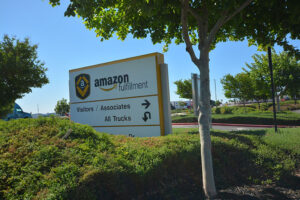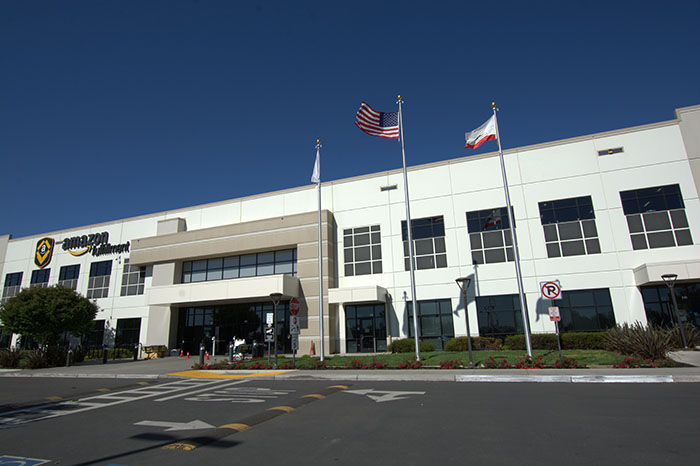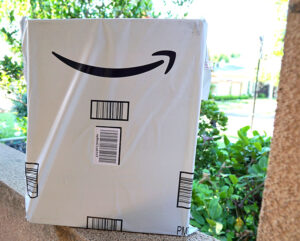Below, Bruce Frohman joins Steve Ringhoff in taking a close look at the consequences when Amazon comes to town. Like Mr. Ringhoff, Frohman believes the reasons Amazon often clouds its arrival in secrecy are not benign.
 Politicians operate under the presumption that any business creating new jobs in a community will be a benefit. When a company the size of Amazon comes to town, heaven and earth are moved to approve whatever it wants.
Politicians operate under the presumption that any business creating new jobs in a community will be a benefit. When a company the size of Amazon comes to town, heaven and earth are moved to approve whatever it wants.
In the short run, the benefits of job creation are undeniable. Economists and politicians sing at length about the benefits to the community, so we need not reprise their lyrics here.
Excepting for thoughtful critiques from observers like Steve Ringhoff, analysis of what kinds of jobs are created and the long-term economic effects gets lost in political fanfare and hyperbole.
Amazon will build a distribution warehouse in Turlock. It will hold stuff that will be distributed when ordered. The facility will serve as a big box store without sales people or showroom. Workers will pack and ship internet purchases in a factory setting.
The front page story in the May 23, 2021 Modesto Bee promises 700 jobs in a one million square foot warehouse. Amazon is famous for pushing automation. How many of the 700 promised warehouse worker jobs will eventually be eliminated?
Amazon pays about $15 per hour, barely high enough to rent locally and nowhere near enough to ever buy a home. Working conditions in non-unionized Amazon warehouses are known for being unenjoyable. Will the new facility be better?
Amazon has high paying jobs. But nearly all of them will be located elsewhere. Turlock will mostly have the lowest paying company jobs in the entire country.
Amazon Warehouse Will Cause Local Job Losses
During the Covid pandemic, many people shopped online to eliminate the need to visit local retailers for necessities. Local businesses saw profits plummet as volume dropped. Some businesses closed their doors for good.
The goal of Amazon is to dominate retail sales worldwide. Turlock is an easy mark.
Many shoppers presume that Amazon sells product at the lowest price. Many products sold on the company web site have a list of identical items selling at different price points. The buyer naturally assumes that by buying at the lowest price listed on the site, he is getting the lowest price possible anywhere. This could be true or illusory.
Look for a particular product at different points in time, and you will notice that prices on the Amazon web site are constantly changing. The company can instantaneously change prices to meet or beat the price either at all local stores or maybe the store your smart phone-tracking device says you visited; or, it may quote a higher price if you did not visit any store.
 The consumer’s lowest price assumption creates a bias against local retail stores. In time, the bias will erode local stores retail traffic and drive them out of business, resulting in retail sector job loss. Without local competition, Amazon would be free to raise prices.
The consumer’s lowest price assumption creates a bias against local retail stores. In time, the bias will erode local stores retail traffic and drive them out of business, resulting in retail sector job loss. Without local competition, Amazon would be free to raise prices.
Local retail job loss may be partially offset by more delivery driver jobs, which may also be filled by automation job losses at Amazon’s warehouse. Drone delivery may replace delivery driver jobs. We have no certain way to predict.
Turlock owned businesses retain profits in the community for their owners. But Amazon profits flow to corporate offices out of state. Eventually, sucking of profits out of Turlock will reduce the community’s wealth and cost more jobs than the warehouse will create. Amazon’s warehouse will eventually turn into a net loss for the community.
We won’t discuss the predictable negative impacts of lost farmland taken by the warehouse and traffic impacts.
Allow the Warehouse or It Will Be Built Down the Road
Amazon can pretty much have its way with Turlock. If the warehouse is turned down, it can be built down the road in Livingston, Hilmar, or Delhi. Undoubtedly, communities with economies facing greater hardship will be welcoming.
But the Turlock center places the warehouse in closer proximity to customers who will soak up the products inside the big box. The company will deliver product at lower cost than from a warehouse down the road and more easily bankrupt the competition. In approving the warehouse, the Turlock City Council may have doomed its retail future.
Secrecy Masks the Danger
 Short term planning is much easier than long-term management. Thus, politicians do not have the foresight to see the drawbacks of the Amazon warehouse. Like the true peril of the Covid virus was hidden from those who refuse to wear masks, the virus of Amazon retail is similarly unacknowledged. Until one becomes sick, the presence of a virus is not evident.
Short term planning is much easier than long-term management. Thus, politicians do not have the foresight to see the drawbacks of the Amazon warehouse. Like the true peril of the Covid virus was hidden from those who refuse to wear masks, the virus of Amazon retail is similarly unacknowledged. Until one becomes sick, the presence of a virus is not evident.
The role of government is to manage competition. Its responsibility is to keep the free market from being corrupted by lopsided economic forces like Amazon. But retail competition is thick, and the diseased part of the marketplace is not easy to spot.
The tipoff that Amazon is harmful lies in the secrecy surrounding construction of the warehouse. The fact that the company does not want locals to know who will own the warehouse has nothing to do with keeping its competition uninformed. The goal is to prevent citizen opposition until it is too late to protest construction of the warehouse and to maximize government giveaways. Nothing good comes of government secrecy.

I have been reducing my online shopping because of the following: I despise Amazon because of the way they treat workers and , as the article reveals, how they treat communities.
Our freewheeling economic system without regulations allows oligarchs like Bezos to destroy their competition. A Kansas Republican lamented how this happened in the 1950s when major bakeries systematically destroyed local shops. You can see a couple major brands in grocery stores nationwide, whether you’re in Florida, New York, Kansas or California.
Washington Post
Whole Foods
Now, MGM Studios
Amazon is rolling up the American Culture into a mono-culture, with its tentacles into every aspect of American life.
Bezos is on a deeply alienating course…
Bruce Frohman, Steve Ringhoff, Eric Caine, Turlock, and Valley Citizens:
Want to draw attention to CBS This Morning interview, June 15, 2021, with their CBS News contributor, Jodi Kantor, who is also a Pulitzer Prize winning correspondent who worked for over a year on a new story about Amazon, for New York Times. Jodi Kantor did her Amazon Investigation into its treatment of employees: THE AMAZON THAT CUSTOMERS DON’T SEE. In Kantors first interview since New York Times’ post she states the NY Times’ post “quotes brave former Amazon executives who went on the record about their concern for Jeff Bezo’s philosophy for his company and how it was playing out”.
“Employees complained of unintentional firings and unfair conditions…
Bezo’s wanted quick turnover, because he wanted people when they were fresh and new”, Kantor stated, to paraphrase Bezos, he felt that human beings are inherently lazy. He wanted to keep people moving and intentionally limited upward mobility in Amazon’s warehouses.”
I certainly hope I did not misquote CBS, NY Times, Kantor, or former Amazon execs. I did my best remembering, considering such a quick listen of a nearly 6 minute CBS This Morning newsworthy piece.
Here, I barely touched on what was covered. Please seek out both NY Times and CBS yourself. I am certain any one of you listed in salutation above can do a thorough Valley Citizen post on info gleaned. People need furtherwarning.
Does Turlock want to confront Amazon with these allegations? It would behoove Turlock to take steps to assure Amazon and their citizens, employed by Amazon, that employees are not to be treated as if dime a dozen throwaways. Or, does Turlock want to back out? It does not at all seem like a win-win deal, at least not for Valley Citizens who are desperate enough for work that they will take a job with Amazon.
What say you, Turlock?